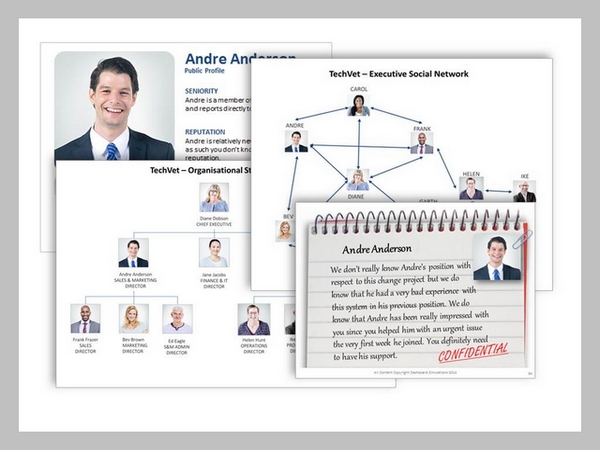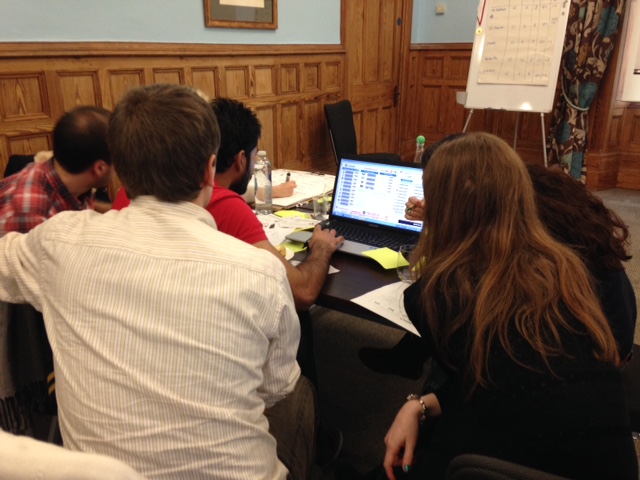Background to the customer:
Each year The William J Clinton Leadership Institute at Riddel Hall plays host to 30 PhD students from Queens University Belfast, University College Dublin and Trinity College Dublin for a week long Innovation Academy. The Academy concluded its final day with a Team-based Change Management Simulation game where the students vigorously competed with each other in teams.
Customer needs
The requirement was for a team-based simulation game which would stretch and engage 30 extremely bright and easily bored students for a full day and deliver valuable and practical insights on a key business topic as well as team dynamics and individual style.
The Solution
The COHORT Change Management Business Simulation allows teams to engage with 10 senior executives in an organisation over a 9-month period to attempt to win their support for a major change which the team has been tasked to implement in their organisation. The simulation is conducted using a highly structure approach which blends gamification, informal/social learning, behavioural economics and business simulation. In this instance it was played in 5 competing teams.
 Participant Feedback
Participant Feedback
Below are some direct quotes from the students about what they learned from the simulation:
- You need to engage with everybody to make change happen – nobody is unimportant
- It is important to listen to the views of your team members – diversity is a strength
- You need to have a way to track and measure whether the change is happening or not
- You need to have a game plan ….. and you need to stick to it!
- It is hard to get consensus when you are under time pressure but it is vital that you do
- People can be influenced and influential in many different ways – be creative!

Overall Conclusions and Value
We asked Davy McAlinden, Programme Director, at the Institute who introduced and observed the game for his observations:
“The students found the combination of gameplay, experiential learning and social learning to be a most engaging and fun way to rapidly acquire vital skills for their business careers. Participants commented how they quickly developed valuable insights in key areas such as how to influence others, working effectively in teams and operating successfully under constant time pressure and change”.
Davy went on to say: “We have run the COHORT simulation three times with exceptional feedback each time. This type of game-based learning is definitely an extremely effective way to rapidly develop key skills”.